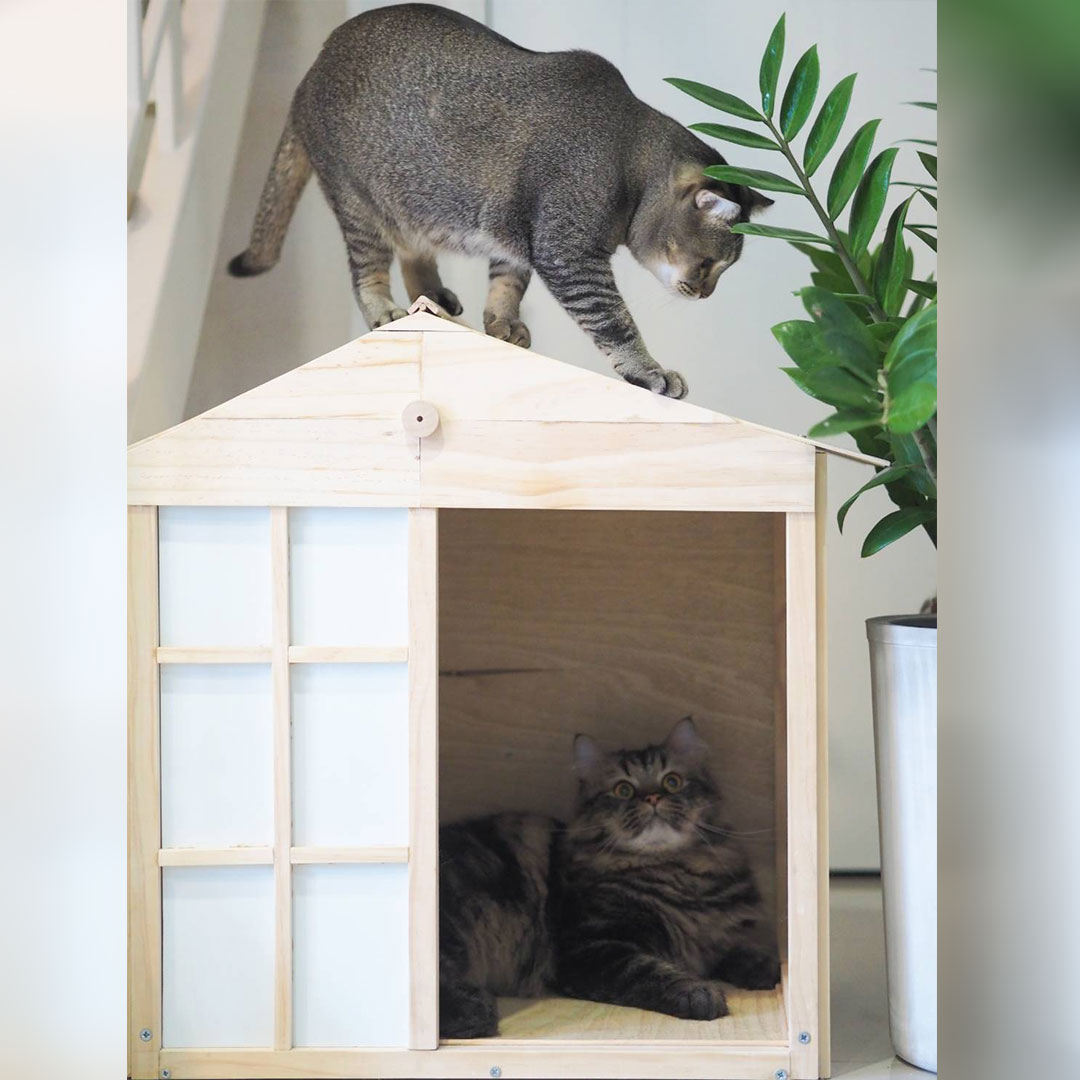Every pet needs love and good care from its owners. When it becomes sick, the owner should be more careful as it cannot tell us how it feels.
When it comes to diseases among beloved pets, dogs and cats should be the very first pets we think of. In this article, Tonkit360 will tell you about 5 serious diseases that usually happen to cats. If you own cats, be aware of them and always check your pets for signs.
1. Cat distemper
or in other words, Canine Parvovirus. This is considered a severe infectious disease in cats and it is now spreading in Thailand. Although the spread is still in the limited area, general cats can get infected easily. Cat distemper is caused by parvovirus which affects cats’ digestive system. Besides cats, this can also be found in other animals such as tigers, lions, or wild cats. The fatality rate from this disease is quite high, especially in the groups of unvaccinated cats, young cats, and weak cats.
A cat will show an obvious sign of depression. It will get bored with food, vomit, and have a high temperature. This disease can even cause a fever, a stomachache, and diarrhea. If the diarrhea becomes severe, the cat could be dehydrated and shocked just like humans. This disease can be observed by body size. The cat with this disease will have thicker intestines and a stomach full of gas. In a young cat, it can be dead shortly after being infected.
This disease can be spread when a healthy cat comes into contact with the secretions of a sick cat. More importantly, humans can be a carrier of this disease as well. Therefore, if you find a cat with the symptoms mentioned above, separate it from other cats immediately. This disease is found in cats of every age and can occur in any cat. It can be prevented by having your cats vaccinated every year.
2. Cat Flu
This is caused by Feline Viral Rhinotracheitis Virus (FVRC) or Feline Herpevirus (FHV), and Feline Calici Virus (FCV) which are viruses found only in cats. It is a respiratory tract infection and usually spreads when the weather is changing, from getting viruses that spread through the air. Moreover, this disease can occur with bacterial infections like Chlamydia or Bordetella. Even though the mortality rate from this disease is not high, it is quite harmful to kittens or weak cats as the rate could go up by 30%.
Conjunctivitis, nasal and bronchitis, drowsiness, breathing difficulties, a fever, a cough, a running nose, and anorexia are all symptoms of FHV.The symptoms will be more severe in the case of FVC. The most significant symptom is the pitted wound on the tongue. If the cat feels hurtful, it will not eat. If the symptoms get more severe, the virus can get into the lungs and cause pleurisy, which could eventually lead to death.
This disease is usually found in unvaccinated cats. The disease rate could reach 100 percent. Most of the infected are stray cats. In the case of a virus spreading in the air, home cats can also get infected. The disease can be prevented by having cats vaccinated every year and avoiding putting unimmunized cats with other cats. One thing to be aware of is that cats that have recovered from the disease can still be carriers.
3. Leukemia in Cats
This disease is caused by Feline Leukemia virus infection. It is one of the diseases that is found often in cats. It can be spread through every breed of cat, both in the wild and in captivity.
Normally, the symptoms can be divided into 2 categories. For the first group, cats will have lower immunity, which could cause other complications together with anemia. In the other group, tumors will be found in cats’ bodies. When touched, cancerous lumps will be found spread all over the cat’s body. The symptoms include enlarged lymph nodes. Jaundice can be found as well, which indicates that there is an abnormality in the bloodstream. The infection may develop to destroy the liver and kidney functions. This virus spreads through touching secretions—saliva, tears, urine, or poop—of sick animals. Stray cats and cats that owners let loose are at high risk of infection. It is usually found in male cats.
Prevention includes separating sick cats from healthy ones and getting cats vaccinated.
4. Peritonitis
This is caused by the infection of viruses in the Coronavirus group (the same name as COVID-19). This virus is similar to the one causing inflammatory bowel disease in cats (Feline enteric coronavirus) but more serious as it can mutate and cause more severe diseases in cats.
As for the symptoms, normally cats will show signs of depression, get bored with food, and lose weight without obvious causes. The sick cat will be thinner, but its breasts and stomach will be bigger. If the virus develops in nerve tissue, the cat can have a symptom related to the nervous system, such as being unable to control the bowel system or being unable to balance its body. This also depends on the cat’s health factor.
Cats with a high-risk of peritonitis are usually weak cats, such as young cats or old cats. Also, it can occur as a complication in cats with low immunity due to other illnesses. However, this disease can occur in cats of any breed and gender. Cats can spread this disease among them by touching the poo of sick cats using the same sandbox.
5.Feline Immunodeficiency Virus (FIV)
Not only can humans be infected with AIDS, but cats can also be infected with feline AIDS (FIV). This disease is caused by being infected with FIV viruses in the retrovirus group. The infected cats will have a symptom similar to people with AIDS, which is a problem with immunity.
Initially, sick cats will not show symptoms, but it can spread the disease to healthy cats. Once the symptoms start to show, cats with FIV can be observed from how the urinary system, respiratory system, mouth, and gum function, enlarged lymph nodes, and getting sick easily due to impaired immunity. Most cats are chronically ill and can die shortly after being sick.
Healthy cats can get this disease from sick cats through saliva and blood. Mothers can spread through kittens as well. This disease is mostly found in male cats, which like to go out or fight with other cats. Female cats usually get infected during the heat. The prevention can be done by not letting cats go outside of the house.
Thank you to Thonglor Pet Hospital and Sanook for the information
Thank you to Sanook for the picture.

